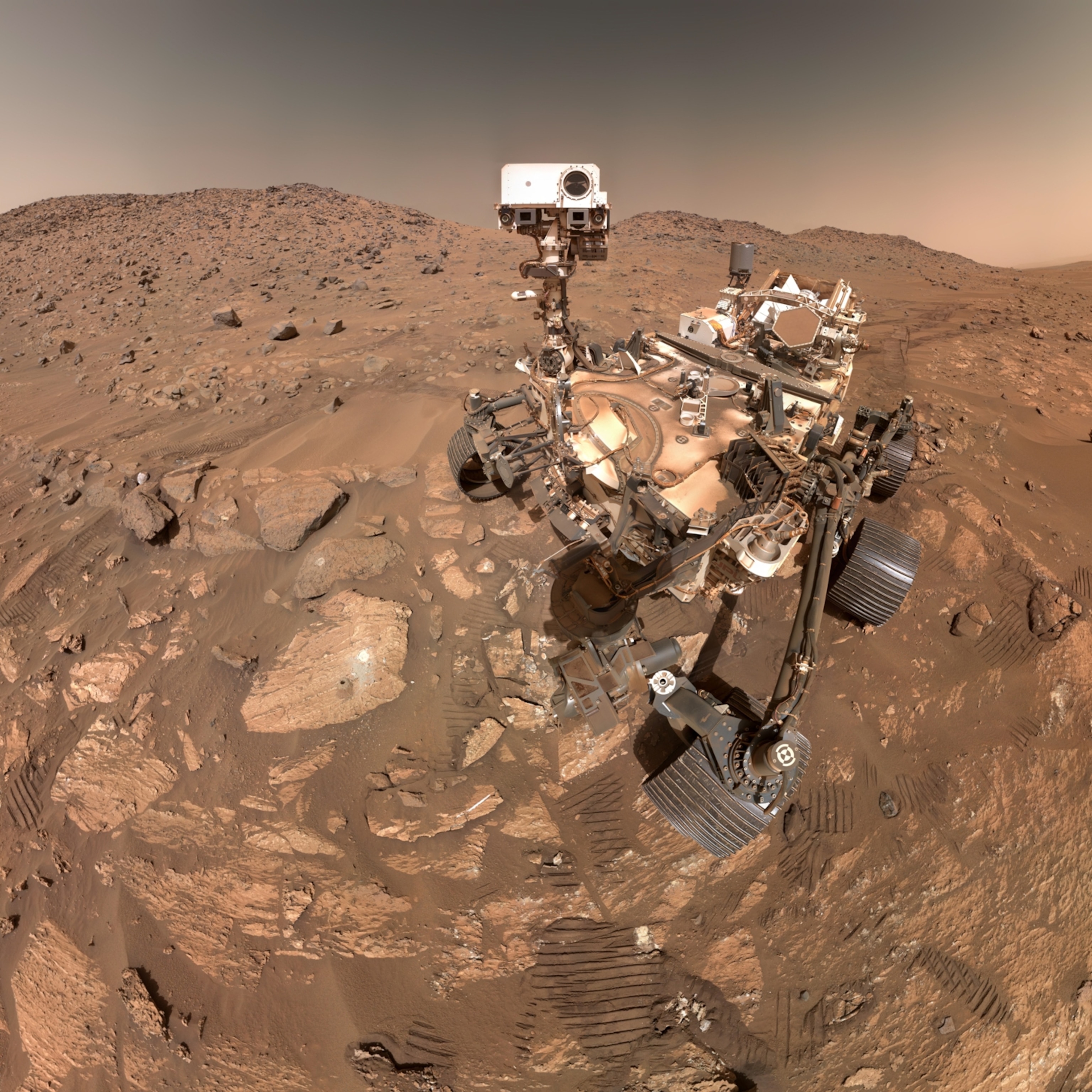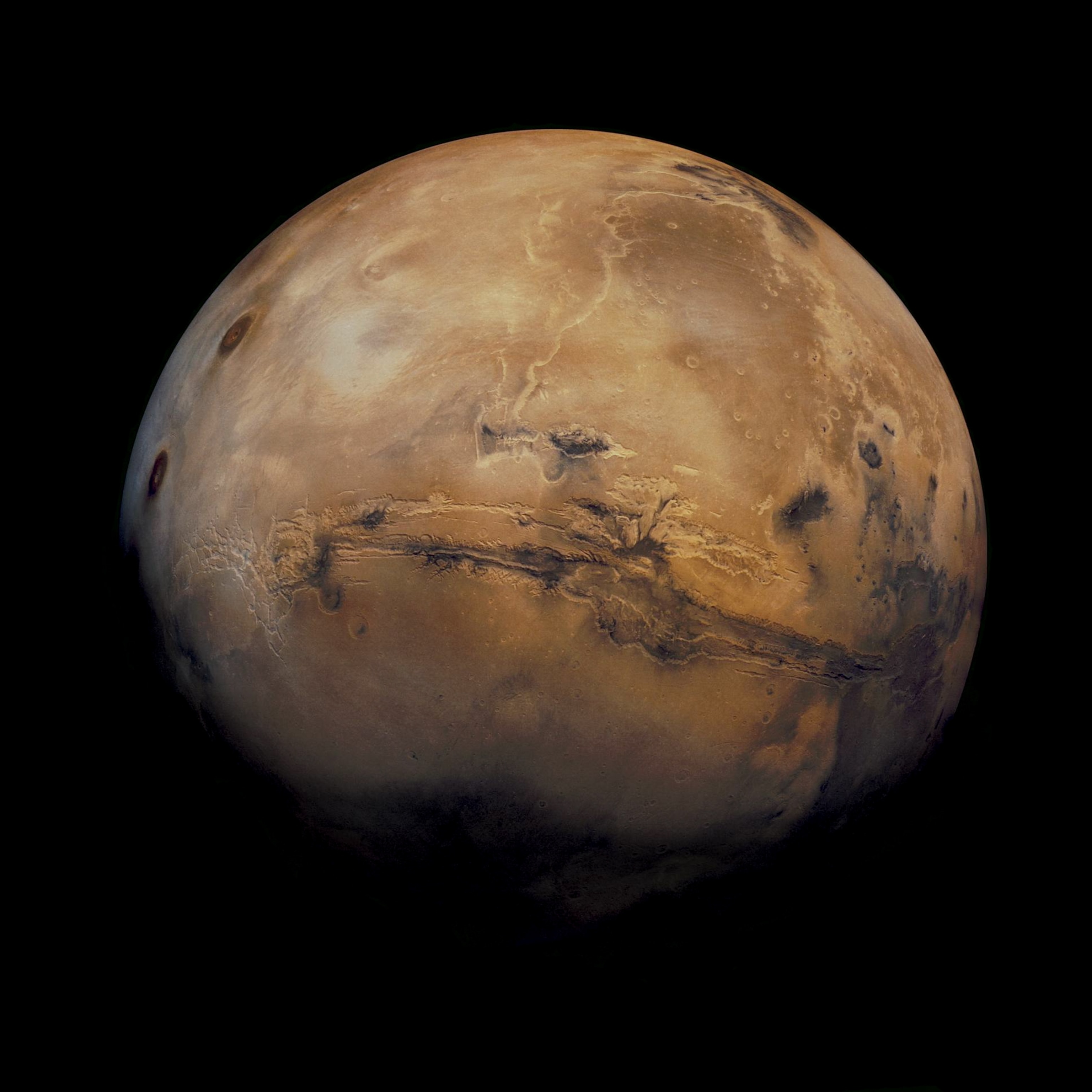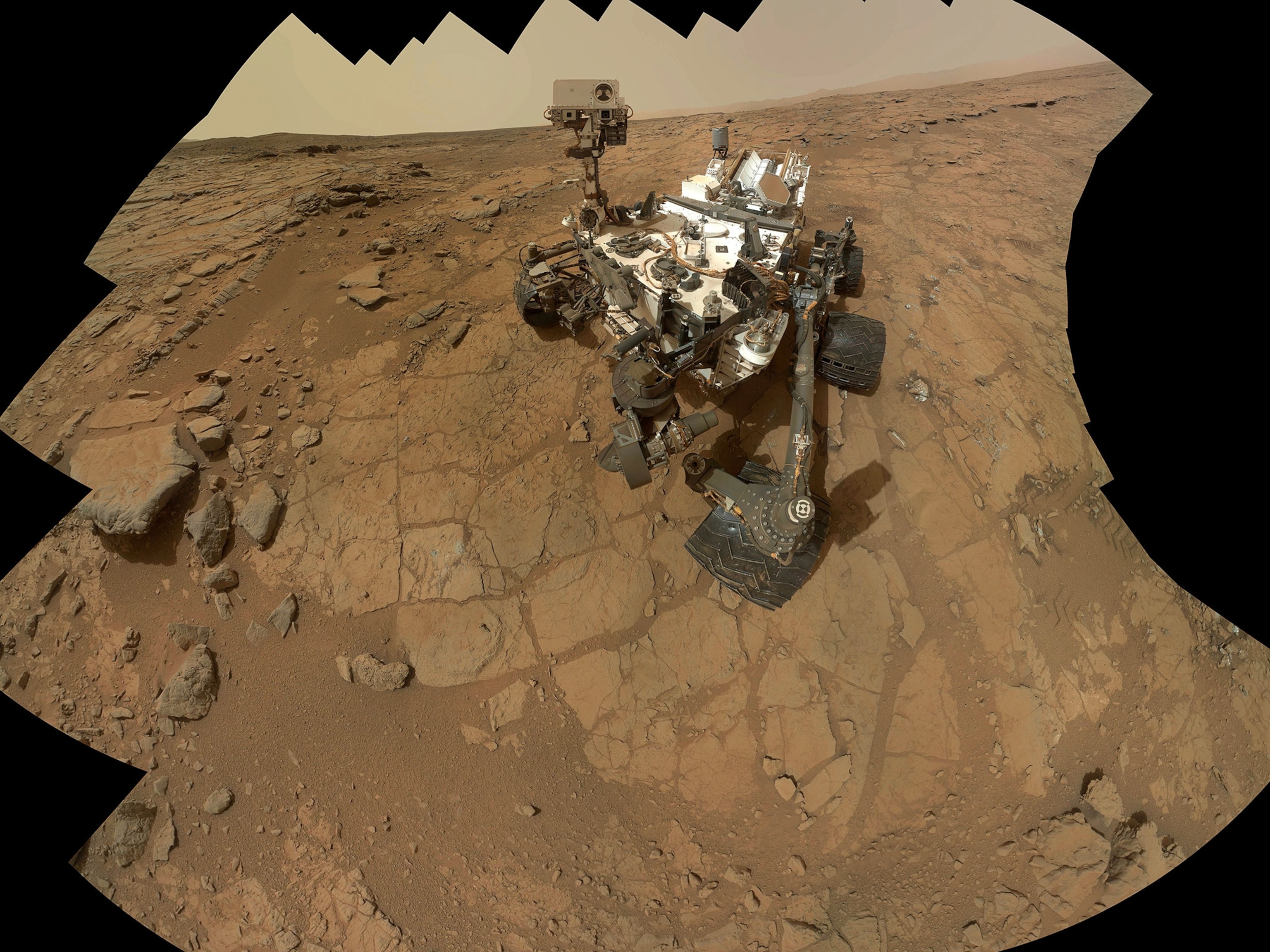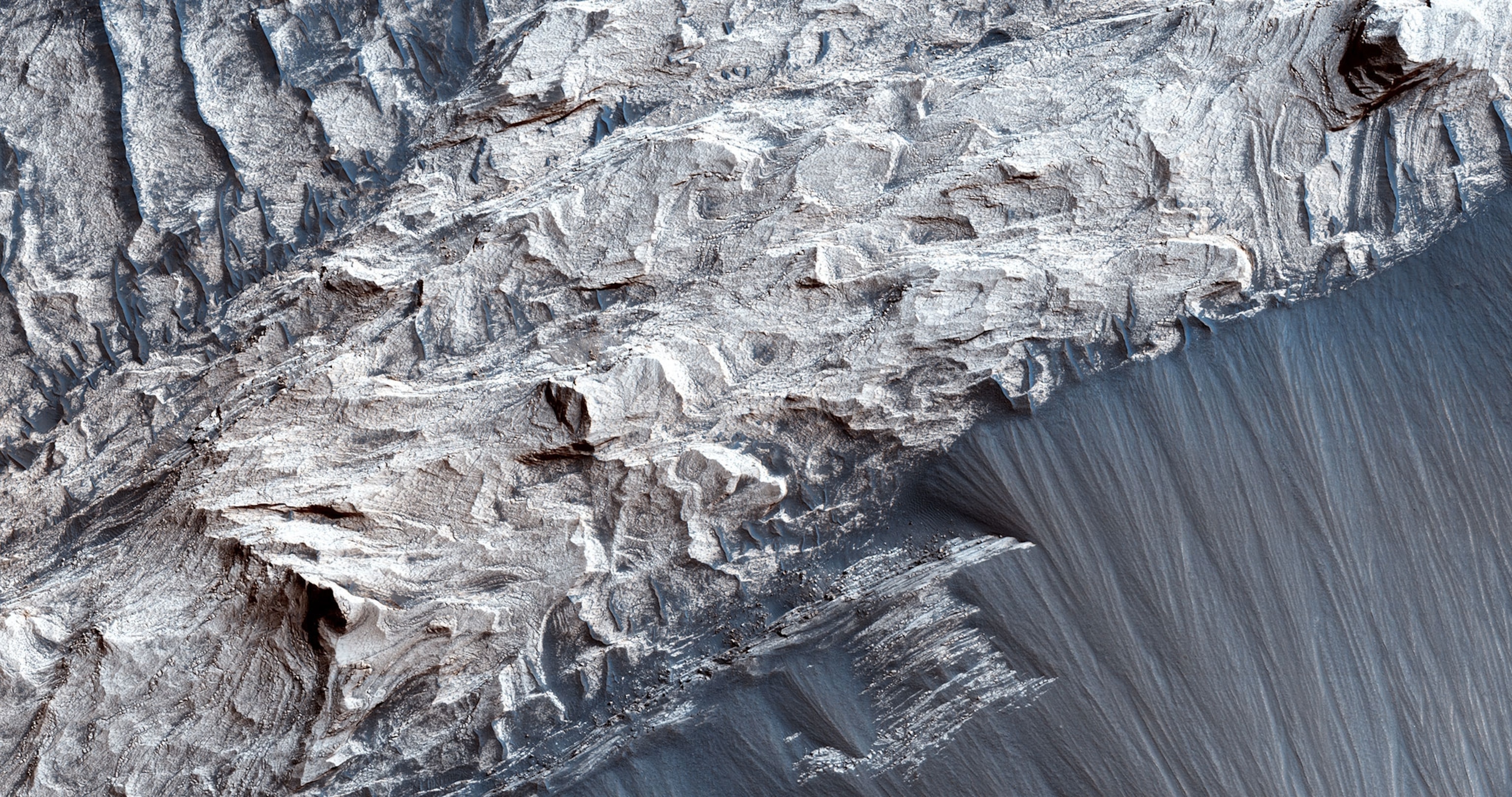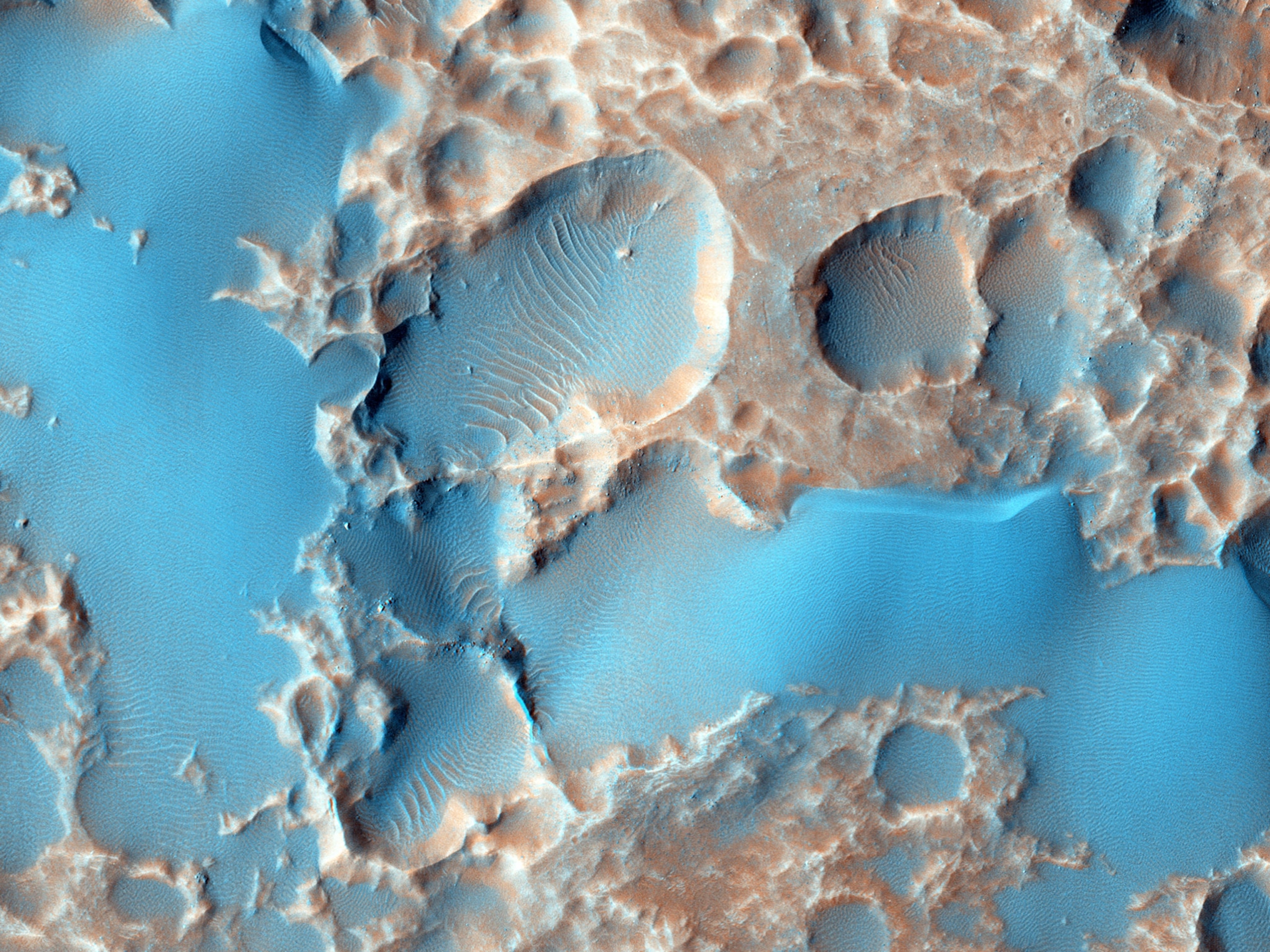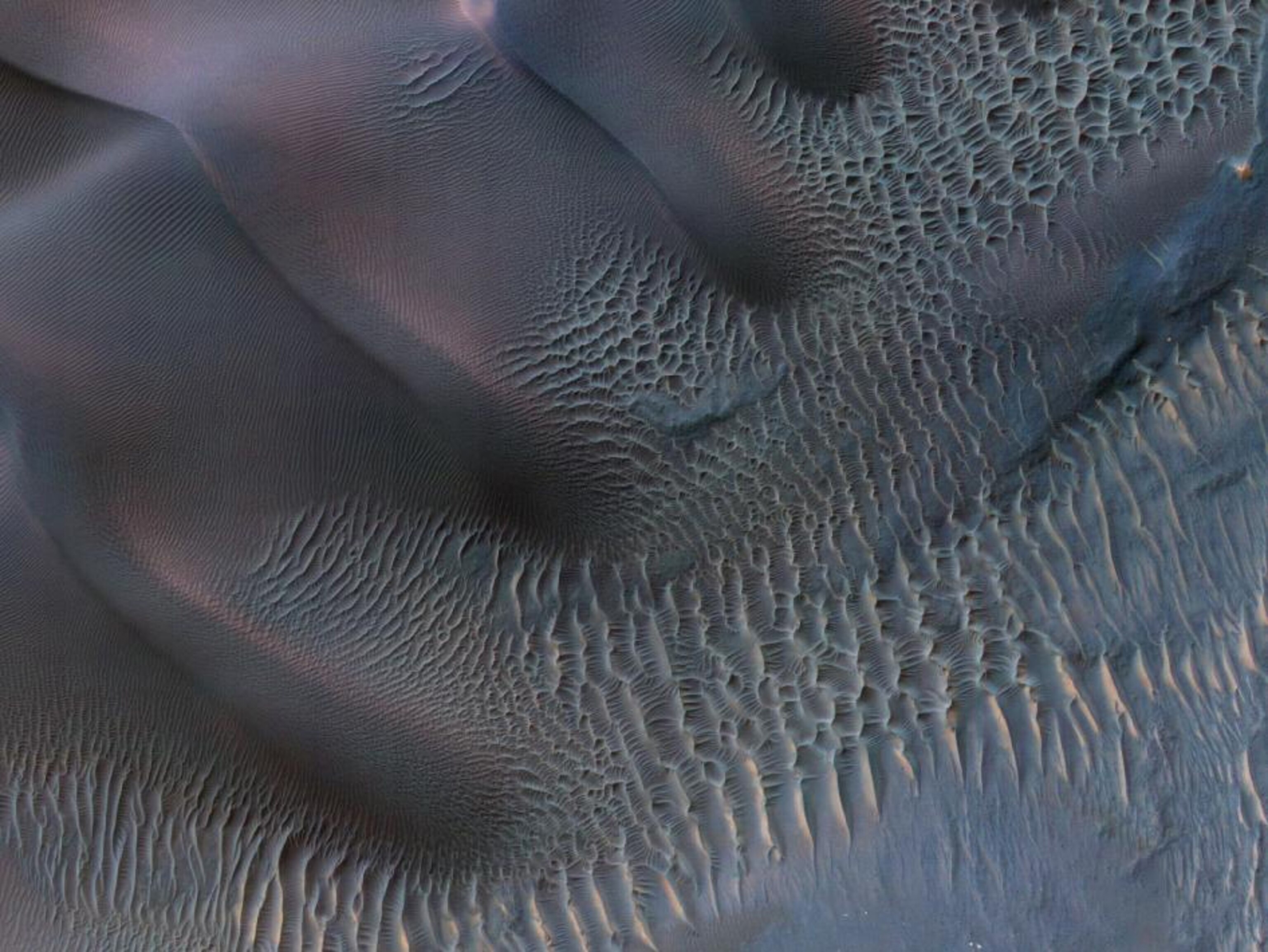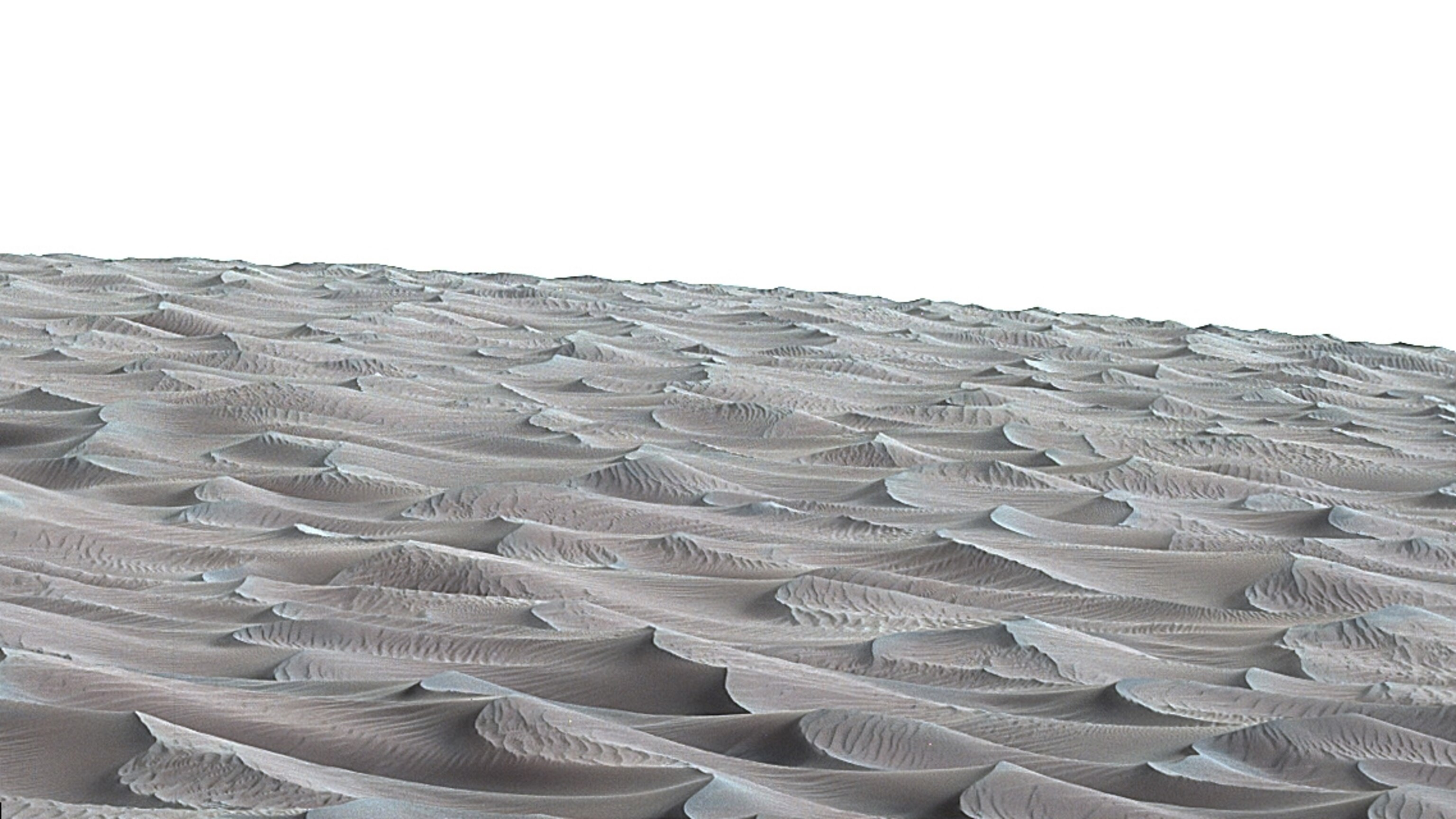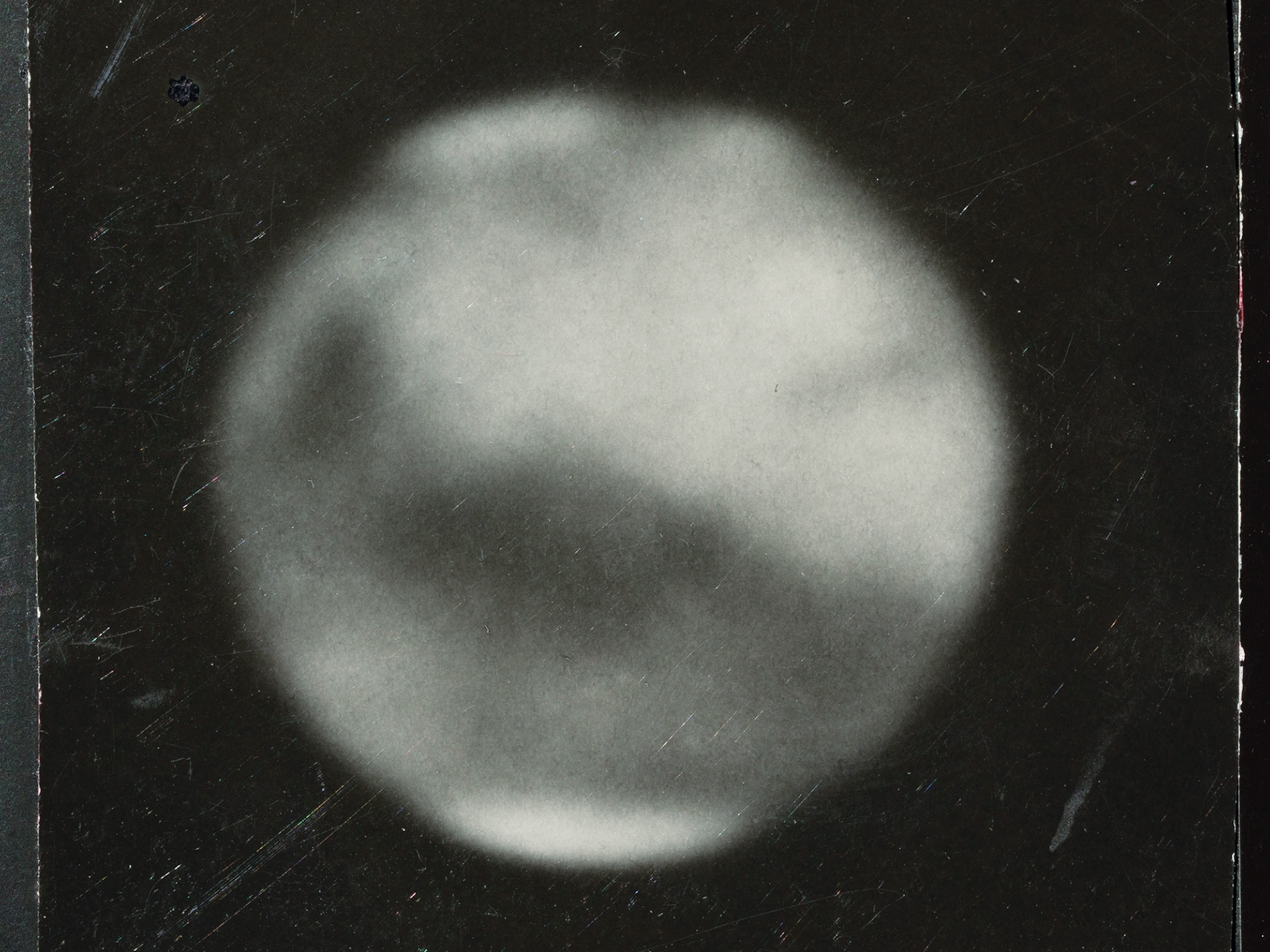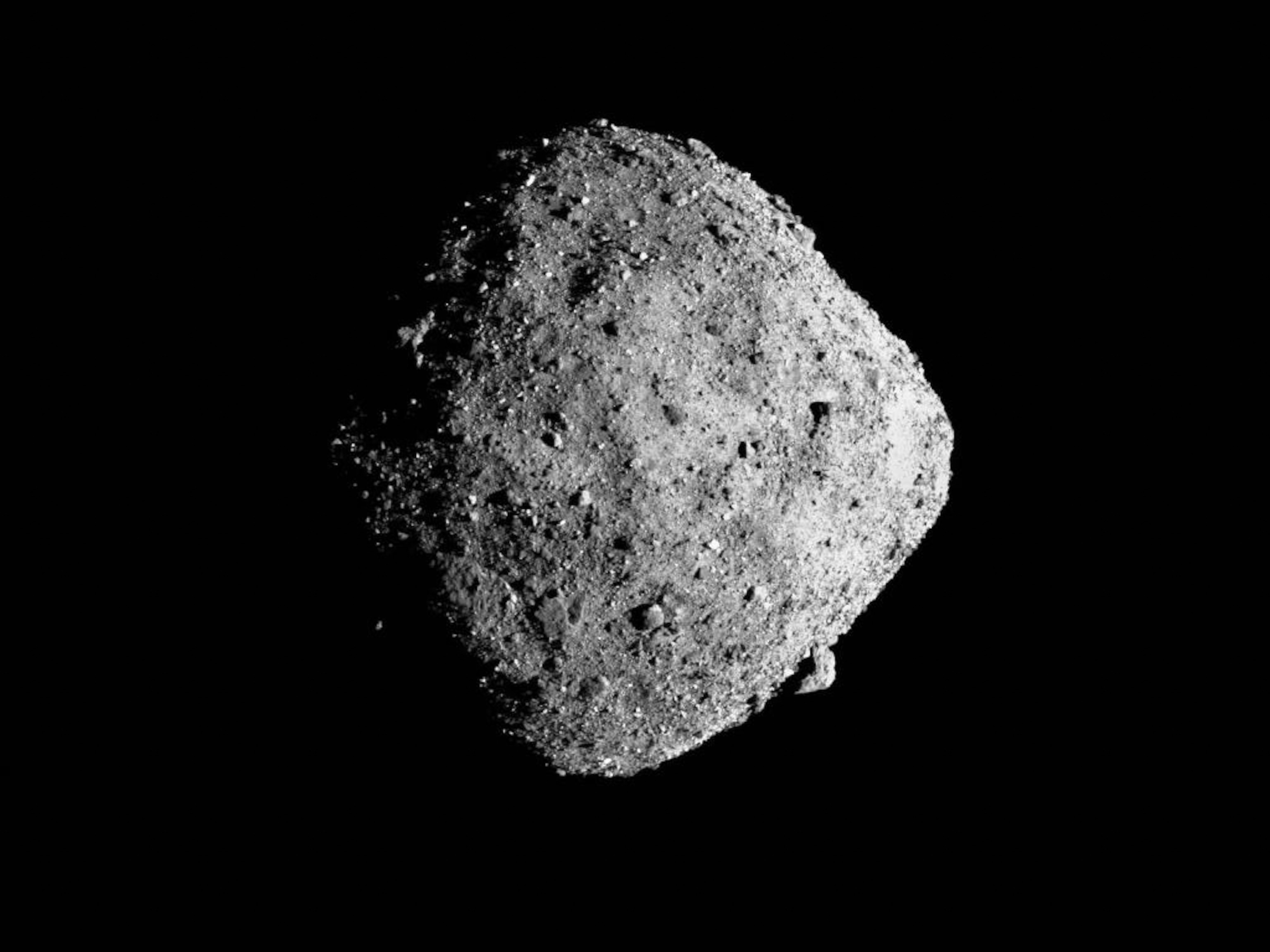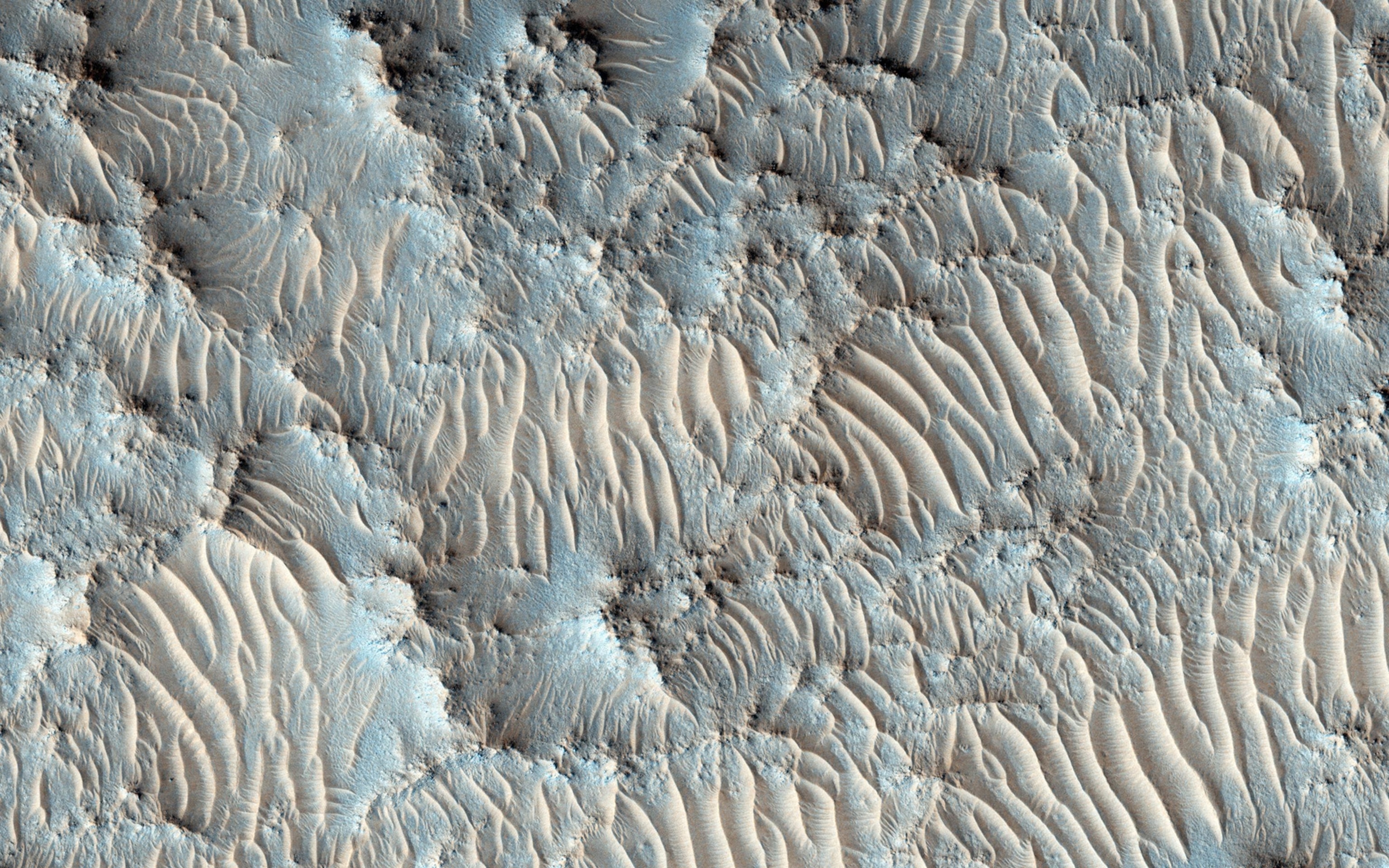
Why NASA thinks this crater is the best spot to search for life on Mars
After more than four years of debate, an ancient crater lake emerged as the top landing spot for the Mars2020 rover.
When NASA sends its next rover to Mars in 2020, it’ll be aimed at a small patch of alien landscape near Jezero Crater. The landing site, announced today and selected by NASA associate administrator for the Science Mission Directorate Thomas Zurbuchen, hosts a fossilized river delta that formed as water trickled into an ancient crater lake.
The site “offers geologically rich terrain with landforms reaching as far back as 3.6 billion years, and could potentially answer important questions in planetary evolution and astrobiology,” Zurbuchen said during a press conference.
“Getting samples from this unique area will revolutionize how we think about Mars and its ability to harbor life.” (Read more about whether water on Mars might be able to host life as we know it.)
Unlike most Mars rovers and landers of prior decades, the 2020 robot’s mission will be to not only find hints of warm, watery conditions in the past, but to also set up the search for life itself. It will do this by collecting and caching samples of Mars rocks for a future spacecraft to retrieve and return to Earth, and it will sniff around for the distinctive signatures of biology in the rocks it encounters.
“We want to seek evidence of possible ancient life on Mars and second, we want to seek a diversity of rock types with which to explore the history and evolution of Mars,” says Ken Farley, the Mars2020 project scientist.
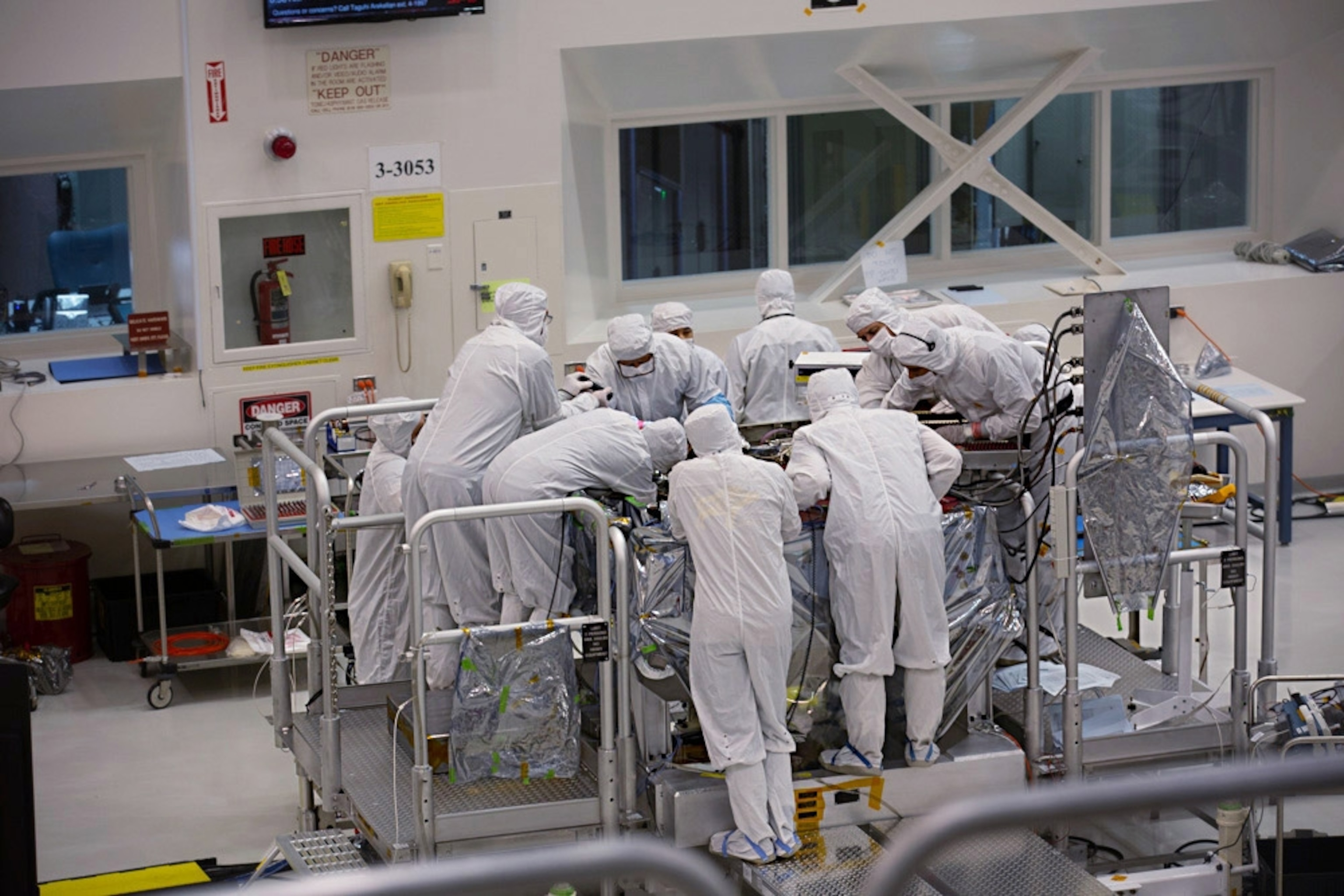
Building on the past
Today’s announcement comes during the tense final days before NASA attempts to set a different spacecraft on the red planet. Called InSight, that mission will use a stationary lander to reconstruct an image of the Martian interior using seismic waves, which should help scientists understand the planet’s formation and early history.
Though Mars is a parched, toxic desert today, the planet was once much warmer and covered in liquid seas. For almost a billion years, while its core churned and produced a protective magnetic field, Mars may have been among the friendlier places for life as we know it to set up and flourish.
The trouble is, finding evidence for past life on an alien world, especially if that extinct life is microscopic, is not exactly easy—but that is what the $2.4-billion 2020 rover will attempt to do.
Similar in design to the Curiosity rover, which set down in Gale Crater in 2012, Mars2020 will be a six-wheeled, nuclear-powered vehicle capable of traversing myriad terrains. Like Curiosity, the rover will need to survive a rollercoaster of a landing, which will once again involve a device called a sky crane, but the landing should be a bit easier because of technology updates. If all goes according to plan, the rover will land in Jezero on February 18, 2021.

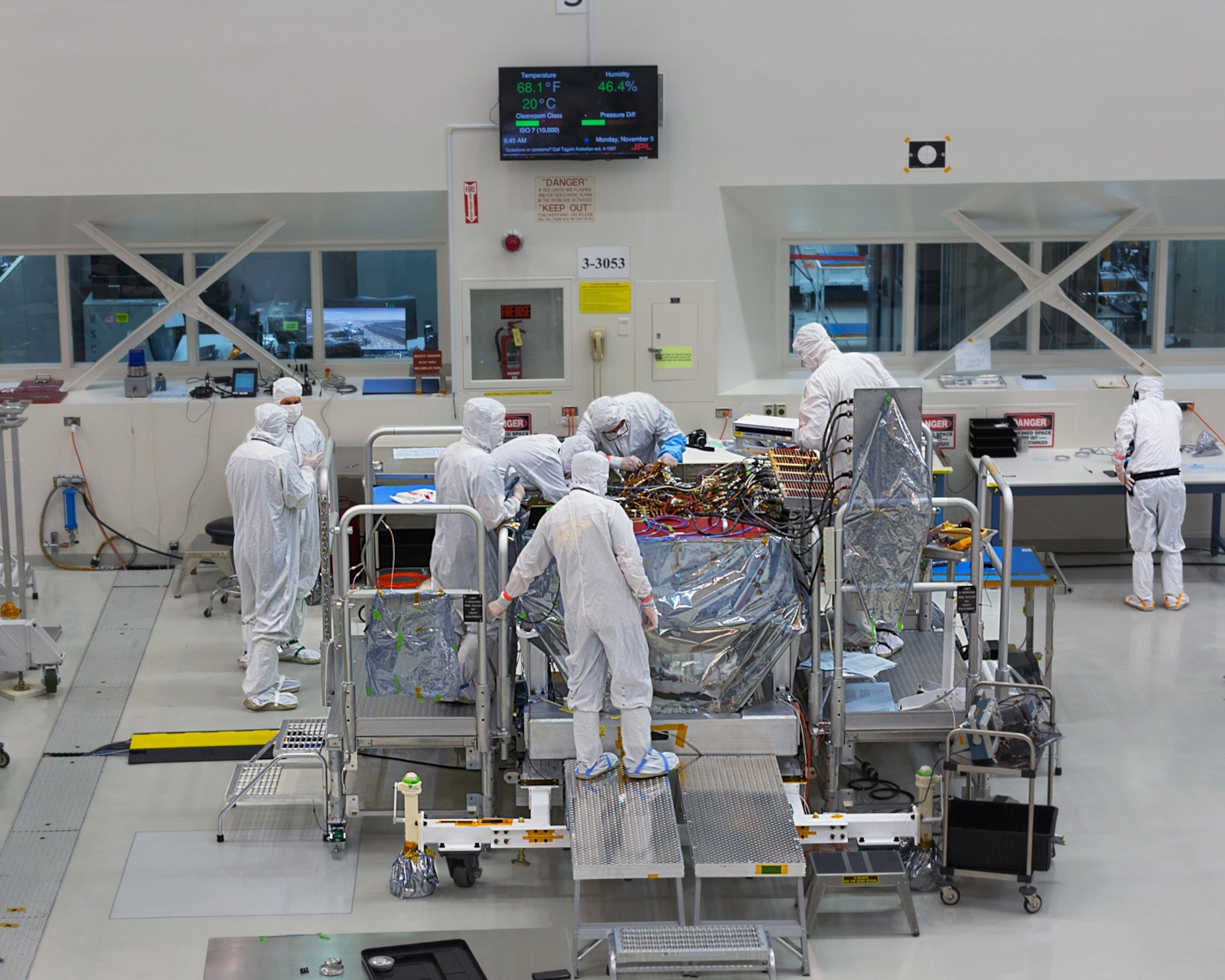
Homing in on a decision
Scientists debated where to send the next Mars rover for more than four years, starting with 64 sites and finally whittling them down to three: Jezero Crater, where rivers dribbled into and out of a long-lived lake; Northeast Syrtis, where buried hydrothermal systems thrust ancient rocks onto the surface; and Columbia Hills, a terrain shaped by hot springs that the Spirit rover explored between 2004 and 2010.
For a while, it seemed as though Jezero and Northeast Syrtis were tied in terms of scientific interest—both sites provide the right types of ancient rocks to collect in the search for evidence of past life. But earlier this year, as scientists moved into the final selection process, a fourth possibility crawled in.
Located halfway between the two leading contenders, the site contained some of the ancient hydrothermal features that made Northeast Syrtis attractive, and it was close enough to the crater—about 15 miles away—for a rover to conceivably visit both. Scientists named it, perhaps not too creatively, Midway.
In late October, during the last of several meetings where scientists convened to debate the landing sites, Jezero, Northeast Syrtis, and Midway were neck and neck (and neck) in a nonbinding vote. The decision ultimately came down to Zurbuchen, who made his final call based on the prime mission alone, and no one is hugely surprised.
“I think there is less disagreement about the value of these sites compared to what we have experienced in the past, such as with the Curiosity site selection,” says Joe Michalski of the University of Hong Kong.
But that doesn’t mean everyone is completely thrilled.
“The beautiful Jezero delta offers a chance to look for life as we know it on Earth. Outside of the crater is the chance to look for like as it is likely to be on Mars, underground,” says Caltech’s Bethany Ehlmann, who is also a National Geographic emerging explorer. “What's going to be really important is for Mars2020 to operate efficiently to collect samples from Jezero, then move out from the crater to the source of its sediments.”
Martian lake life
Stretching 30 miles across and 1,600 feet deep, Jezero is the site of an ancient crater lake (its name means “lake” in Serbian) that was replenished by rivers depositing water and sediments into the basin.
Scientists suspect that water filled the basin for nearly half a billion years, based on observations from orbit that revealed a variety of minerals that only form in the presence of water. In addition, there are some other materials associated with life as we know it, such as carbonate, and clays called smectites that might grab onto and sequester organic compounds.
Perhaps more compellingly, a relict river delta fans out at the western edge of the crater, fed by a headwater region just outside the crater.
“Lakes on Earth are both very habitable and inevitably inhabited,” Farley says. “A delta is extremely good at preserving biosignatures, any evidence of life that might have existed in the lake water, or at the interface between the sediment and the lake water, or possibly things that lived in the headwaters region that were swept in by the river and deposited.”
Mars2020 marks the first time NASA has gotten serious about bringing back samples of Mars rocks. And although that plan will ultimately involve billions more dollars and at least one other spacecraft, scientists are taking the challenge seriously. After all, no one wants to send a robot on an interplanetary journey just to collect useless junk.
As such, the rover is carrying more than three dozen tubes it will use to collect rock samples; five of these are spares, and the other 37 are ripe for the filling. If all goes according to the still-being-determined plan, the 2020 rover will cache these tubes for a future spacecraft to locate and retrieve, which Zurbuchen says could happen as soon as the late 2020s.
And then, once pieces of Mars are back on Earth, scientists can begin to inspect them for clues about extraterrestrial life—both as we know it, and perhaps as we don’t.
“We are focused on searching for Earthlike life on Mars,” Michalski says, “but Mars is not like Earth in some key ways.”
